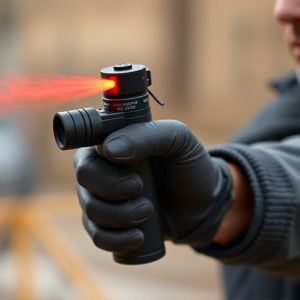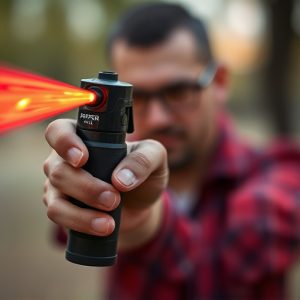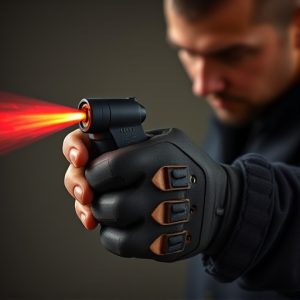Pepper Spray Safety: Effectiveness Across Different Climates
The effectiveness of pepper spray varies significantly across different climates due to capsaicin�…….
The effectiveness of pepper spray varies significantly across different climates due to capsaicin's behavior in varying temperatures and humidity levels. In colder weather, it may freeze upon impact, reducing its irritant properties, while in hot and humid conditions, rapid evaporation diminishes its potency. For optimal self-defense, users should select pepper spray designed for their specific environment to ensure maximum performance when needed.
“Uncover the power and limitations of pepper spray as a self-defense tool in varying environments. This comprehensive guide explores its effectiveness, from understanding its chemical composition to its real-world applications. We delve into how different climates and settings impact its performance, offering insights on optimal usage.
Additionally, we shed light on safety aspects, including potential risks, legal considerations, and responsible handling practices, ensuring informed decisions and effective self-protection.”
- Understanding Pepper Spray: How Effective Is It?
- – What is pepper spray and how does it work?
- – Types of pepper spray and their active ingredients.
Understanding Pepper Spray: How Effective Is It?
Pepper spray, a popular self-defense weapon, has gained prominence for its ability to incapacitate an assailant temporarily. However, understanding its effectiveness across different climates is essential. Studies show that pepper spray can be highly effective in neutralizing attackers, causing temporary blindness, coughing, and difficulty breathing. Its active ingredient, capsaicin, disrupts the nerve signals to the brain, providing users with a crucial window of escape.
While pepper spray’s efficacy remains consistent under most conditions, its performance varies in extremely hot or cold climates. In colder temperatures, the spray can freeze upon impact, reducing its ability to irritate the target’s eyes and respiratory system. Conversely, in hot and humid environments, the spray may evaporate too quickly, minimizing its effect. Therefore, users should consider local weather conditions when choosing pepper spray as a self-defense tool.
– What is pepper spray and how does it work?
Pepper spray, also known as oleoresin capsicum (OC) spray, is a self-defense weapon designed to temporarily incapacitate an attacker by causing pain and irritation. It works by spraying a fine mist of capsaicin, the active ingredient found in chili peppers, into the eyes and respiratory system of the target. This irritates nerve endings, leading to coughing, sneezing, difficulty breathing, and temporary blindness, allowing the user to escape or gain time for further action.
The effectiveness of pepper spray can vary based on different climates and environmental factors. In dry conditions, pepper spray tends to be more potent as it dries quickly on the skin and in the eyes, enhancing its irritant properties. However, in humid environments, the mist may not linger as long, reducing its impact. Therefore, understanding the weather and local climate conditions is crucial when considering pepper spray as a self-defense tool, ensuring its optimal effectiveness in various scenarios.
– Types of pepper spray and their active ingredients.
Pepper spray, a versatile self-defense tool, comes in various forms, each with distinct features and active ingredients. The most common types include oleoresin capsicum (OC) spray and CS gas spray. OC spray, derived from chili peppers, is known for its intense burning sensation and temporary blindness, making it highly effective in disorienting potential attackers. On the other hand, CS gas spray contains a chemical irritant that affects the eyes, nose, and respiratory system, causing tears, coughing, and difficulty breathing.
When considering pepper spray effectiveness across different climates, factors like humidity and temperature play significant roles. In humid environments, some types of pepper spray may dilute faster, reducing their potency. Conversely, in colder climates, the active ingredients can become more concentrated and potentially more irritating. Therefore, choosing a pepper spray designed for optimal performance in your specific environment is crucial for ensuring its effectiveness when you need it most.
In conclusion, while pepper spray can be an effective self-defense tool, its effectiveness varies depending on different climates and environmental conditions. Understanding the types of pepper spray and their active ingredients is crucial for safe and responsible usage. Always remember that proper training and awareness are key to ensuring its safety and reliability in dire situations.


